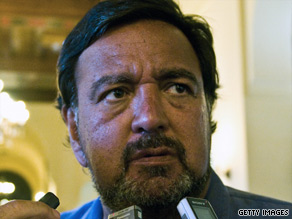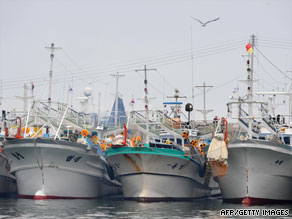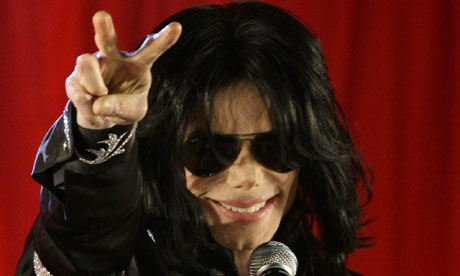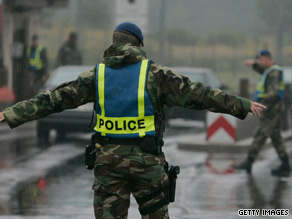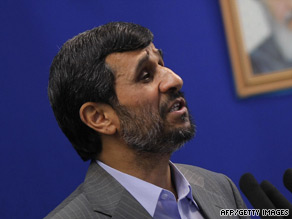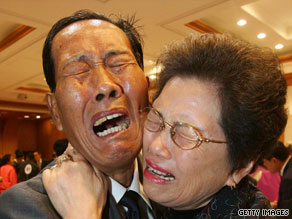
Miss Dugard not only worked in Garrido's printing business in the squalid backyard enclosure where she lived since being snatched, aged 11 - but also met and dealt with customers.
She was in routine email contact with Garrido's clients, chatting on the phone and greeting them in person to hand over boxes of business cards, fliers and brochures produced at the home where she was taken after her abduction.
Related Articles
*
Secret world where Jaycee Lee Dugard was a captive
In their minds she was "Allissa", the polite, smiling eldest daughter of the soft-spoken man regarded as likeable but an increasingly zealous religious nut.
She was, according to Deepal Karunaratne, an estate agent in Antioch who made dozens of orders from Garrido over the past 10 years, "very good at her job", while the firm's prices were attractively cheap.
"She was very professional, and handled the graphics and design and was very knowledgeable, while he was more on the business side of things," he told The Sunday Telegraph.
Mr Karunaratne said he communicated with her too many times to count and last saw her six weeks ago. "We spoke and she told me to pick up the work. She was happy to see me, said, 'Hi how are you?' Everything seemed fine, as usual."
The estate agent wrote to her at an email address under Garrido's name that was used for business purposes, as did Ben Daughdrill, another local businessman who told the New York Times that Miss Dugard was the "genius" in the operation, handling all the art work and generally making the firm, Printing 4 Less, tick along.
The authorities don't yet know if she ever tried to escape from the seedy tents and outhouses where she and her two children by Garrido lived in a concealed plot at the back of the property.
But a question facing police, psychologists, and most poignantly, Miss Dugard herself, is why did she never use the lines of communication she had gradually been allowed by Garrido to reveal her true identity and plead for help?
They will be asking how Garrido's control over a terrified 11-year-old girl gradually moulded her into an outwardly normal, computer-literate young woman - probably with access to the internet - ready to live by another name and keep her secret from the world.
From the little known of her thoughts since being reunited with her mother on Wednesday, the torment of dealing with that issue began immediately her secret was revealed.
Carl Probyn, her step-father, said that in conversations with her mother Terry Probyn at a hotel in the San Francisco Bay area Miss Dugard, who is now 29, had "expressed some regret, like guilt, that she hadn't escaped".
"She is feeling guilt for having bonded with this guy the way she did," he added. "She really feels it's almost like a marriage."
In the view of psychologists the Dugard case betrays classic signs of the Stockholm Syndrome, in which captives develop some kind of a union with their captor as a way of coping with their ordeal.
"She had to at least pretend to make friends with the perpetrator so that she would be fed and able to survive... [causing] her to feel like she belongs there in some unhealthy way," said Alison Walls, a clinical psychologist and professor at the University of the Rockies.
Experts warned that her recovery would probably take years. James McCracken, a professor of psychiatry at the University of California, Los Angeles, said: "One can't overestimate the impact of the loss of her whole family."
Being taken at such a young age, Miss Dugard would probably have felt "as if her entire family has died", he said, although she may also have found "little islands of remembrance to retain hope".
In 2002, by which time Miss Dugard was 21 and had two children by Garrido, he felt confident enough in his manipulation of her to allow her to meet Mr Karunaratne. Indeed she helped save his account for Garrido, noticeably improving the quality of the work when the estate agent had begun to complain.
All that is known of her life between the kidnapping and this later stage is the squalor of her living conditions and that Miss Dugard and the children were never taken to a doctor or to school. It appears she and her daughters were home-schooled by Garrido and his wife and co-accused Nancy, something that is common in the US, especially among the religious.
"I asked who taught the girls and he said he and his wife did," said Mr Karunaratne. "He said he didn't trust public [state] schools."
The estate agent and his wife had the impression that the Garridos lived a normal family life. A few months ago Garrido asked him to pick them all up after their car broke down in Concord, a town 15 miles away. On another occasion his wife bumped into Nancy Garrido, Allissa and the two young girls in the local supermarket.
"Sometimes I would ring and he would say his wife had taken the girls out to the movies or shopping and so on," he said, adding that from the photograph of the 11-year-old Jaycee he can "see her face, her eyes, her smile".
There have been many more sightings by neighbours and acquaintances of the two younger girls, aged 11 and 15, as Garrido increasingly exposed them to the outside world under his vigilant eye.
As recently as Tuesday, he took his children to a "sweet sixteen" birthday party for the daughter of a nearby client. He referred to them as Starlite and Angel, said Cheyvonne Molino, who was taken aback because Garrido had never mentioned having children before. He left quickly, saying "this was not something we do".
It was the girls' "robotic" behaviour and pallid appearance that aroused the suspicion of police at the University of California and finally led to the end of the Garridos' 18-year evasion of justice.
"There were some things about him and the kids that were really alarming, that just didn't settle right with me," said Lisa Campbell, a Berkeley campus police officer who encountered the two children when Garrido sought permission to hold a meeting for his organisation, God's Desire.
She checked and discovered his history as a sex offender before he returned next day.
Her colleague Ally Jacobs who joined that meeting said that when the younger daughter stared at her, "It was almost like she was looking into my soul... her eyes were so penetrating, and she had this smile on her face. I just got a weird, uneasy feeling."
Asked about their schooling the girls said they were in fourth and ninth grade - both wrong by a year - and said they had a 29-year-old sister at home.
The alert Berkeley police then called Garrido's parole officers, who had thought he had no children and immediately summoned him for an interview. He arrived with his wife, the girls and Miss Dugard on Wednesday morning.
Contrary to early reports that she walked into a police station out of the blue to reveal her identity, she introduced herself as "Allissa". From accounts so far, it was Garrido who revealed, under questioning, her true background.







